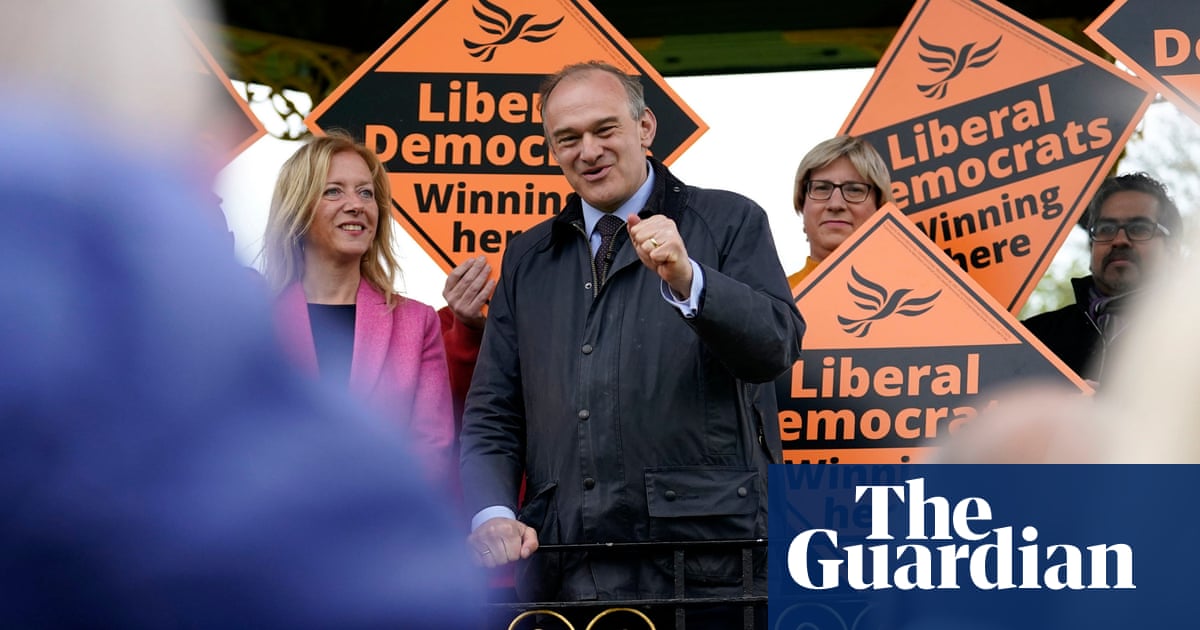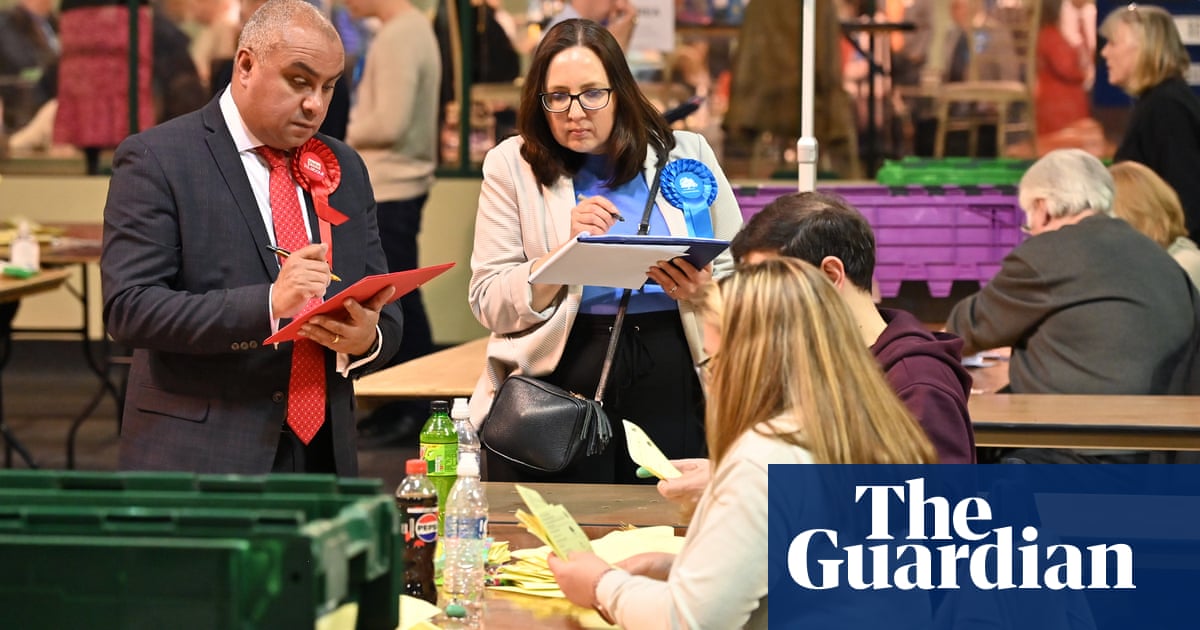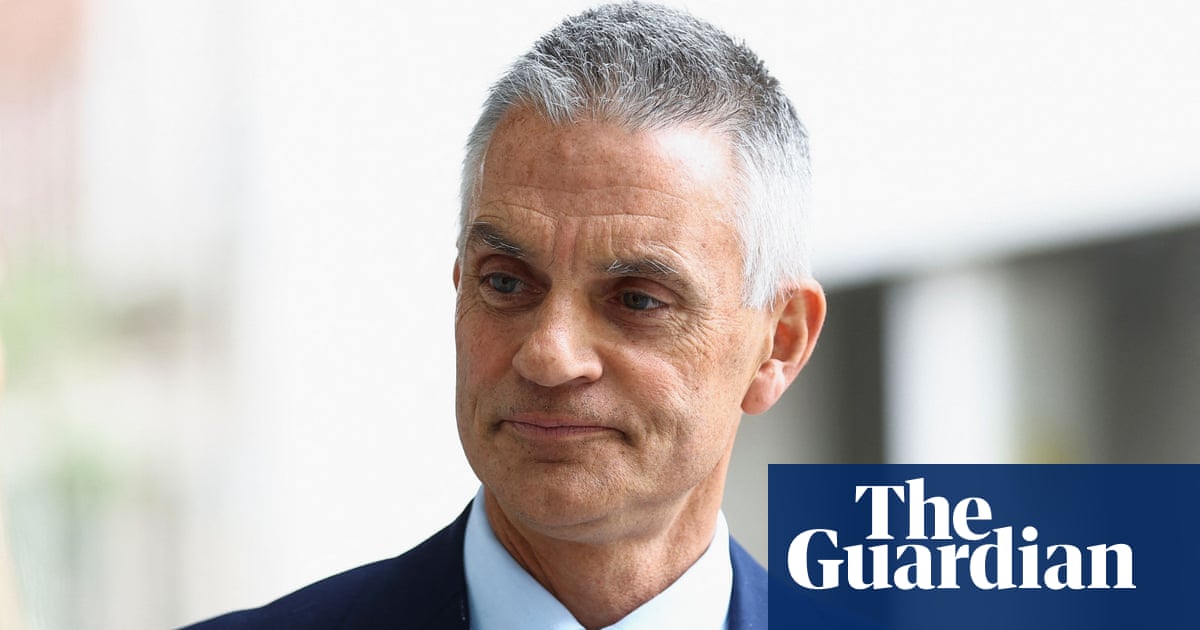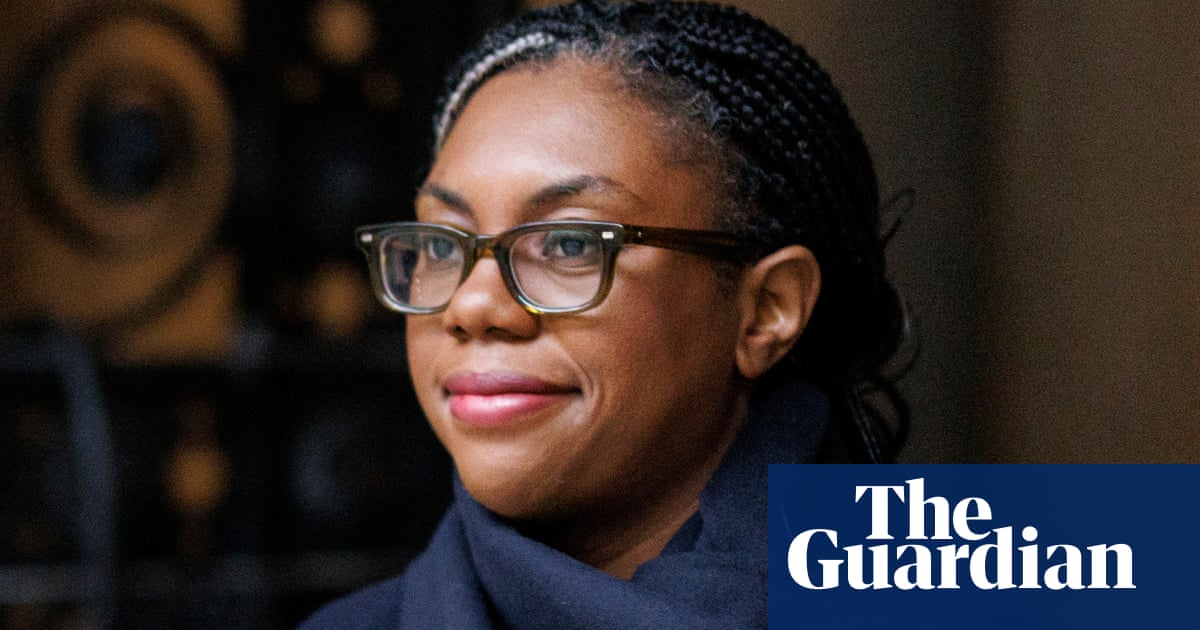
Rishi Sunak has shown he is unable to revive the Conservative brand, Ed Davey has argued after the Liberal Democrats won a series of councils from the Tories, making significant gains in areas represented by senior government MPs.
In results Conservative MPs privately admitted had spooked them, by Friday night the Lib Dems had 400 net gains, well above the ceiling of what the party had predicted for the entire election given they won 700-plus seats the last time they were contested in 2019.
A BBC-projected national vote share, which seeks to extrapolate how the parties would have done in a UK-wide general election, put the Lib Dems on 20% support, only six percentage points behind the Conservatives and better than any election since 2010.
Davey marked the results by travelling to Windsor, where the Lib Dems wrested control of Windsor and Maidenhead councils from the Conservatives, an area taking in the parliamentary seat of Theresa May.
There had been speculation that a sequence of Lib Dem successes in so-called blue wall commuter belt seats could be tempered by the arrival of Sunak, whose sober style was less likely to put off more traditional Conservative voters than the chaotic populism of Boris Johnson and Liz Truss.
But Davey argued this did not seem to be the case: “Sunak hasn’t revived them. It’s far more than whoever is in charge of the Tories now. It’s about their whole brand and that’s difficult to shift. I think it’s difficult for them to recover from this.
“There is a feeling from very traditional Conservatives that this lot don’t have any integrity. While Sunak isn’t viewed in the same way as Johnson, I don’t think he has changed the Tory brand.
“Some of that has really got into the body politic, and I think a lot of Tory voters have just said: ‘Right, I’ve had enough of this.’”
In other results, Davey’s party took control of Stratford-on-Avon council, the Commons base of the former chancellor and education secretary Nadhim Zahawi, a win Davey said had been “very much an outlier” in terms of Lib Dem expectations.
Another gain was Dacorum council in Hertfordshire, the scene of Davey’s eye-catching launch for the campaign in late March, when he was filmed onboard a tractor that drove through a “blue wall” of hay.
In keeping with the party’s fondness for very straightforward visual metaphors, Davey posed in Windsor next to a giant cut-out clock with the slogan: “Time’s up for Rishi Sunak.”
They took control of Mid Devon council, gaining 22 seats, with the Conservatives losing 12 councillors. The party also took control of South Hams in Devon, gaining nine seats.
Lib Dem councillors also helped wipe out the Tories in affluent suburban areas of Stockport, including Bramhall and Hazel Grove, although the council remains in no overall control, with Labour close behind.
Later in the day the party could make significant gains in Surrey, including in Esher and Walton, Surrey Heath and Guildford. If the Lib Dems win Cherwell council it would mean the end of the last Tory-run authority in Oxfordshire. The party has similar hopes for West Berkshire.
Such results are all the more notable given they take place in the home areas of many senior Conservative MPs, with Lib Dem gains expected in the Surrey constituencies of Michael Gove, Dominic Raab and John Redwood, among others.
The results, Davey said, came from a mixture of reason, some national and some local, as well as tactical voting by Labour supporters. There was, however, a common theme, he said: “There is no doubt there was a lot of anger against the Tories. The NHS was easily the biggest issue, and then the cost of living. Lifelong Conservatives, a lot of them, are so angry that they’re either not voting or switching to us.”
The extent and breadth of Lib Dem gains is likely to further spook many Conservative MPs who will fear that the resurgence of Davey’s party plus the apparent willingness of Labour supporters to vote tactically could remove dozens of them in a general election.
With extrapolations of Thursday’s vote suggesting Labour’s lead might be just short of what would be needed for an absolute majority in parliament, 20 or more Liberal Democrat seats could mean the party plays a crucial role post-election.












